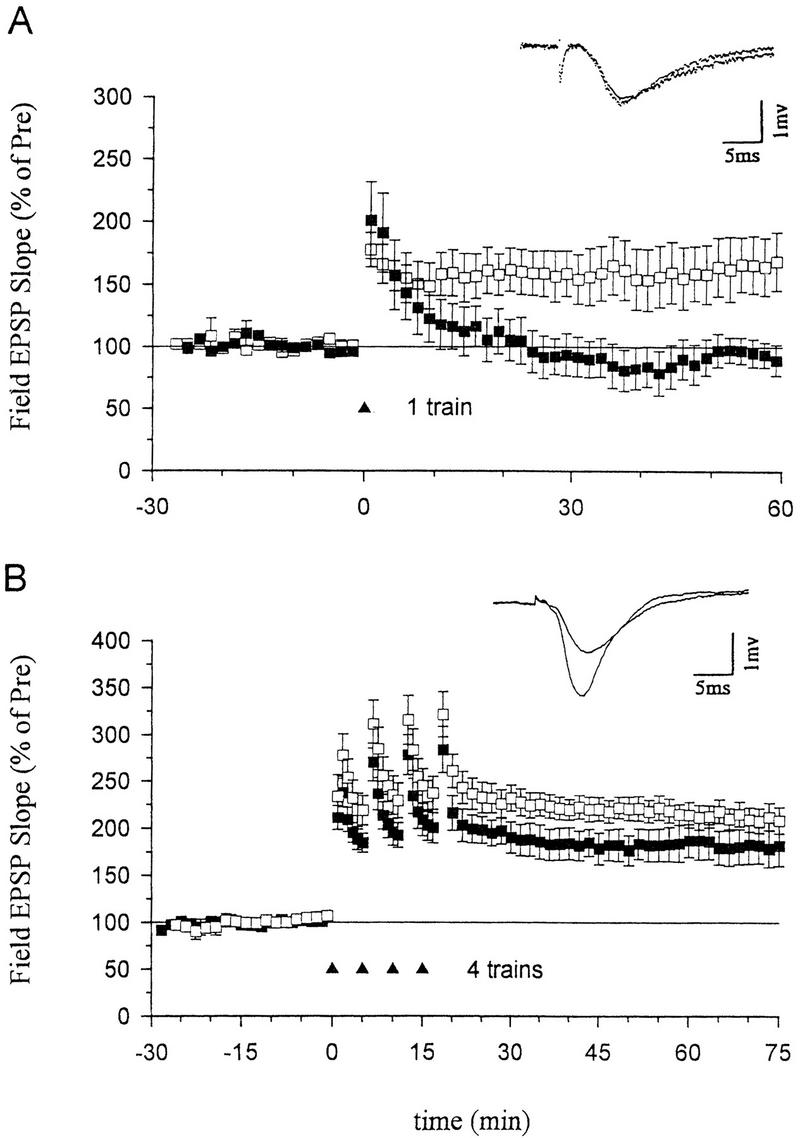Figure 1.

Effects of an inhibitor of nitric oxide synthase on LTP induced by a one- or four-train tetanus. (A) Nω-nitro-arginine (100 μm), a nitric oxide synthase inhibitor, blocked LTP induced by a one-train tetanus (100 Hz, 1 sec) (normal ACSF, average EPSP slope 50–60 min post-tetanus=162.7 ± 22.7% of the average baseline for 30 min pre-tetanus, n = 8; Nω-nitro-arginine, 94.1 ± 11.4%, n = 6, t = 2.42, P < 0.05 compared with ACSF-treated slices). (Inset) Representative recordings of the field EPSP before and 60 min after a one-train tetanus in a slice pretreated with Nω-nitro-arginine. (B) Nω-nitro-arginine (100 μm) only slightly reduced LTP induced by a four-train tetanus (four 1-sec 100-Hz trains delivered at an interval of 5 min; 181.0 ± 20.3%, n = 7) as compared with ACSF-treated slices (210.5 ± 12.9%, n = 9, not significantly different). (Inset) Representative recordings of the field EPSP before and 60 min after a four-train tetanus in a slice pretreated with Nω-nitro-arginine. The average prevalues were 0.45 mV/msec (ACSF), 0.40 (Nω-nitro-arginine) (A) and 0.41 (ACSF), 0.36 (Nω-nitro-arginine) (B). (□) ACSF; (█) Nitro-arginine.
